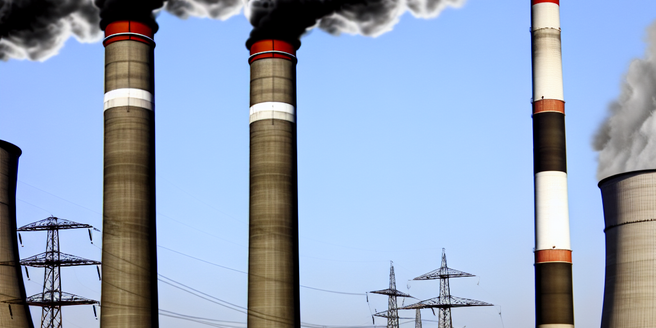
Understanding the Basics of Global Warming
“Global warming” refers to Earth’s rising average temperature due to the greenhouse effect of gases like carbon dioxide, primarily produced by human activities such as burning fossil fuels and deforestation. This results in trapped heat within Earth’s atmosphere and rising temperatures, with the scientific community affirming the human influence on these phenomena.
The severe consequences of global warming include shifts in weather patterns and extremes like intense storms and rising sea levels, dramatically affecting natural systems leading to species displacement and extinction. The melting of polar ice caps also threatens both wildlife and human communities by disrupting the global ecosystem balance.
For these reasons, understanding and mitigating global warming effects is crucial for environmental preservation, and humanity’s survival and well-being, requiring our commitment to reducing greenhouse gas emissions and promoting sustainable living habits.
Connection Between Global Warming and Increasing Ocean Temperatures
Global warming, resulting from excessive amounts of carbon dioxide and other greenhouse gases emitted into the atmosphere by human activities, raises ocean temperatures by trapping heat from the sun within Earth’s atmosphere. These gases are absorbed by our oceans which leads to a rise in temperature, significantly affecting the marine environment. Activities such as deforestation, burning of fossil fuels, and industrialization release large volumes of these harmful gases, creating a heat-trapping blanket known as the greenhouse effect. This high level of trapped heat furthers global warming and the rise in ocean temperatures. This incessant cycle is primarily driven by human-induced activities that contribute to greenhouse gas emissions.
How Rising Ocean Temperatures Feed Tropical Cyclones
Tropical cyclones, or hurricanes/typhoons depending on the region, thrive on warm ocean temperatures, gaining strength from the heat energy in these water bodies. Warm waters lead to more intense cyclone activity. As ocean temperatures increase due to global warming, so does the rate of water evaporation, leading to a moisture-rich atmosphere, and providing tropical cyclones with additional fuel to intensify. The heat energy from the sea intensifies the cyclones, making them more destructive. Ultimately, global warming’s effect of warmer ocean temperatures results in conditions that fuel more potent tropical cyclones with enriched moisture content and heat energy, increasing their potential destructiveness.
Evidence of Intensifying Tropical Cyclones due to Global Warming
Global warming is a documented phenomenon with a wide-ranging impact, including the intensification and increased frequency of tropical cyclones. These tropical storm systems are just one dangerous consequence of our warming planet, fuelled by increasing ocean surface temperatures. As global warming leads to higher sea-surface temperatures, the energy available to these storm systems is enhanced.
This escalating trend of increasingly intense storms poses a rising threat to coastal communities worldwide. The powerful cyclones, with amplified storm surges, increased precipitation, and stronger winds, could even extend their devastation beyond coastal regions and further inland. This stark correlation between global warming and intensifying tropical cyclones is a critical warning about our planet’s future, necessitating comprehensive measures to combat global warming. Our climate change approach must be re-evaluated and adapted to better protect communities at risk from these increasingly powerful tropical cyclones.
Future Predictions: Global Warming and Tropical Cyclones
Climate change and global warming increase the likelihood that future tropical cyclones will be more intense. This is caused by higher global temperatures exacerbating extreme weather conditions. Climate models predict a hotter earth will lead to an increase in the severity and unpredictability of these cyclones. Therefore, a considerable reduction in greenhouse gas emissions is necessary to mitigate the impact of these potential disasters and to diminish our greenhouse gas footprint. This involves targeting and reducing various pollutants causing the greenhouse effect, the leading contributor to global warming. Simply put, to curve this worrying trend, we have to cut down greenhouse gas emissions, to contain the intensifying and unpredictable nature of tropical cyclones.
